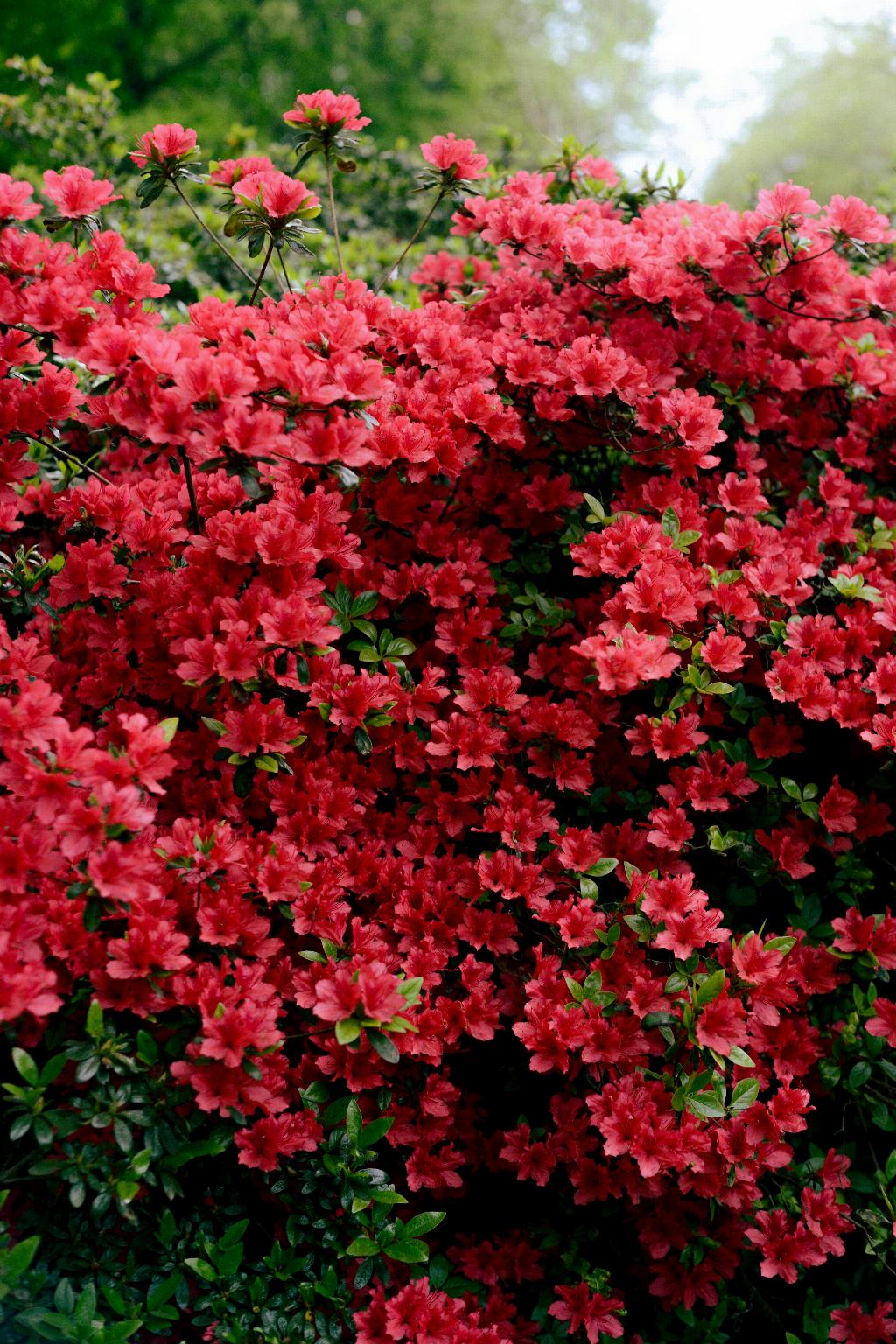Yes, it is unfortunate but true – deer do eat azaleas. These beautiful flowering shrubs are unfortunately a favorite snack for deer, who are known to munch on the leaves right down to the stems. This habit can leave your azaleas looking quite bare and damaged, which is always disappointing for gardeners who love the vibrant colors and lush foliage these plants provide.
Despite their stunning appearance, azaleas are not considered deer-resistant plants. It seems that deer have a particular affinity for these plants, making them vulnerable to being grazed upon by these browsing animals. So, if you have azaleas in your garden and a population of deer in your area, it’s important to be aware of the potential for your beloved azaleas to become a tasty treat for these creatures.
When deer feed on azaleas, they can cause significant damage to the plants. Not only do they consume the leaves, but they may also nibble on the stems, resulting in a less-than-ideal appearance for your azalea bushes. This can be frustrating for gardeners who have put time and effort into cultivating these plants, only to have them become a buffet for passing deer.
It’s important to take proactive measures to protect your azaleas from deer damage if you want to maintain their beauty and health. There are various methods you can employ to deter deer from feasting on your azaleas, such as using physical barriers like fencing or netting, applying deer repellents, or planting other deer-resistant species around your azaleas to divert the deer’s attention.
While it can be disheartening to see your azaleas being eaten by deer, it’s essential to remember that these animals are simply following their natural instincts. Deer are herbivores and will graze on a variety of plants, with azaleas unfortunately being on their menu. Understanding this behavior can help you approach the situation with empathy and find effective solutions to protect your azaleas.
Some gardeners opt to plant deer-resistant species in their gardens to minimize the risk of deer damage to their plants. While no plant is entirely deer-proof, selecting species that are less palatable to deer can help reduce the likelihood of your azaleas becoming a target for these animals. This strategy can create a more deer-friendly environment while still allowing you to enjoy a beautiful garden.
It’s worth noting that deer populations can vary in different regions, so the level of deer pressure on your azaleas may depend on where you live. If deer are prevalent in your area, it’s wise to be proactive in implementing deer deterrents to safeguard your azaleas and other vulnerable plants in your garden.
As frustrating as deer feeding on your azaleas may be, it’s crucial to approach the situation with a balanced perspective. Deer are an integral part of the ecosystem, and while their appetite for azaleas may be inconvenient for gardeners, it’s essential to coexist harmoniously with wildlife and find ways to protect your plants without causing harm to these animals.
Ultimately, the question of whether deer eat azaleas is a resounding yes. These graceful shrubs are indeed a preferred snack for deer, which means that gardeners who wish to maintain their azaleas’ beauty must take proactive measures to deter deer and preserve the integrity of their plants. By understanding deer behavior and implementing effective strategies, you can enjoy the presence of both deer and azaleas in your garden without compromising on either’s well-being.
So, the next time you spot deer roaming near your azaleas, remember that while they may have a taste for your plants, there are ways to coexist peacefully and allow both your garden and these majestic animals to thrive in harmony.

